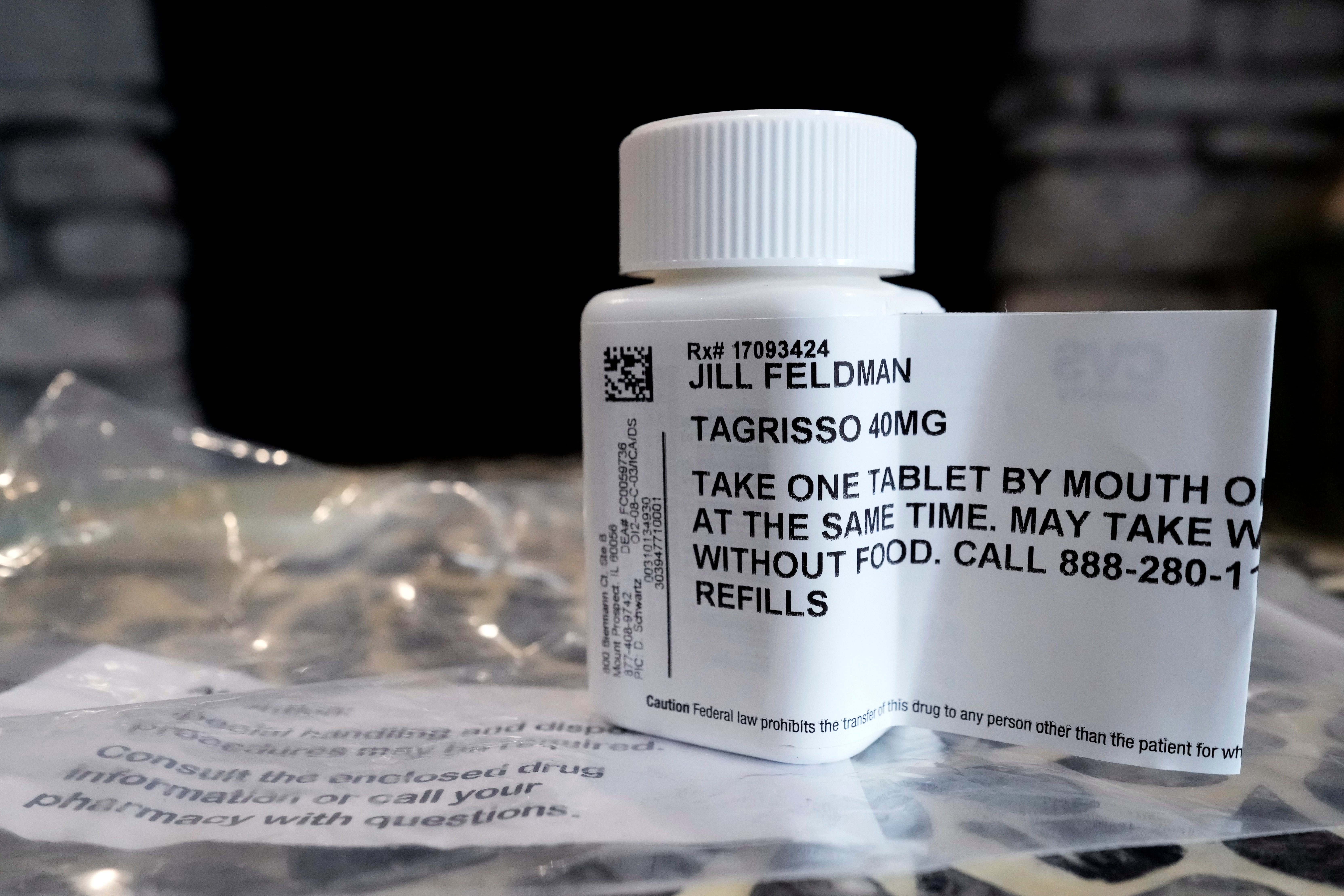
A groundbreaking daily pill has been approved for routine use by the NHS, offering new hope for hundreds of lung cancer patients.
The drug Osimertinib (Tagrisso), developed by AstraZeneca, has been shown to double survival time in specific cases and will now be routinely available following a recommendation from the National Institute for Health and Care Excellence (Nice).
Osimertinib targets a specific genetic mutation, the epidermal growth factor receptor (EGFR) mutation, commonly found in non-small-cell lung cancer (NSCLC).
This mutation fuels abnormal cell growth, and the drug works by targeting these mutated cells, helping to prevent the cancer’s return after surgery. It is administered alongside chemotherapy.
Previously, access to osimertinib was limited to the Cancer Drugs Fund (CDF). However, from now on, approximately 600 eligible patients in England with EGFR mutation-positive NSCLC will have routine access to this life-extending treatment.
This marks a significant step forward in lung cancer care within the NHS, providing a new standard of treatment for those with this specific genetic profile. The decision to provide routine access underscores the drug’s proven efficacy in improving survival rates for a substantial number of patients.

Helen Knight, director of medicines evaluation at Nice, said: “I am pleased we have been able to recommend that this targeted treatment for a specific gene mutation of lung cancer will be routinely available on the NHS.
“Previously the only treatment for people with this gene mutation of lung cancer where the tumour has been surgically removed was chemotherapy so I know patients will welcome this additional option.”
Trials found the median disease-free survival time for patients on osimertinib was 65.8 months compared with 28.1 months for patients taking a placebo.
Some 88% of people on osimertinib also lived for five years compared to 78% of people on the placebo.
Ms Knight added: “At Nice, we are determined to constantly learn from data and implementation and the information gathered during this drug’s time in the CDF and further clinical studies mean we can make this positive recommendation.”
It is estimated that about 95 people die of lung cancer every day in the UK.
In the last 10 years, Nice claims it has made 48 positive recommendations for treatments for the disease, which it estimates to be six times more than the previous decade.
Jules Fielder has been taking osimertinib since 2021.
She was diagnosed with stage four lung cancer in 2021 at the age of 37, despite not smoking or having the classic symptoms of the disease, such as a persistent cough.
“Lung cancer has no labels; it can happen to anybody at any age,” Ms Fielder said.
“When I had my first scan after three months of being on osimertinib, the cancer had shrunk by 90% in my lungs.
“And I have stayed stable since that day. And because they are tablets, we don’t have to go to hospitals and be strapped to machines.”
Dr Jesme Fox, medical director of Roy Castle Lung Cancer Foundation, added: “Another misconception is that if you get lung cancer, there is no hope. That is not true at all.
“If we pick up lung cancer early, then surgery and radiotherapy are potentially curative. And we have seen many advances in the last 10 to 15 years, there are a lot more treatment options now than there used to be.”
Professor Peter Johnson, NHS England national clinical director for cancer, said: “It’s great news this daily, life-extending pill is now routinely available as another treatment option for all patients in England with this type of lung cancer – secured at a cost-effective price for taxpayers.
“This drug offers the chance of precious additional years of life for hundreds of people following an operation for lung cancer with a specific gene mutation – and is just the latest example of cutting-edge, targeted cancer treatments to which the NHS has secured routine access too for patients.”







